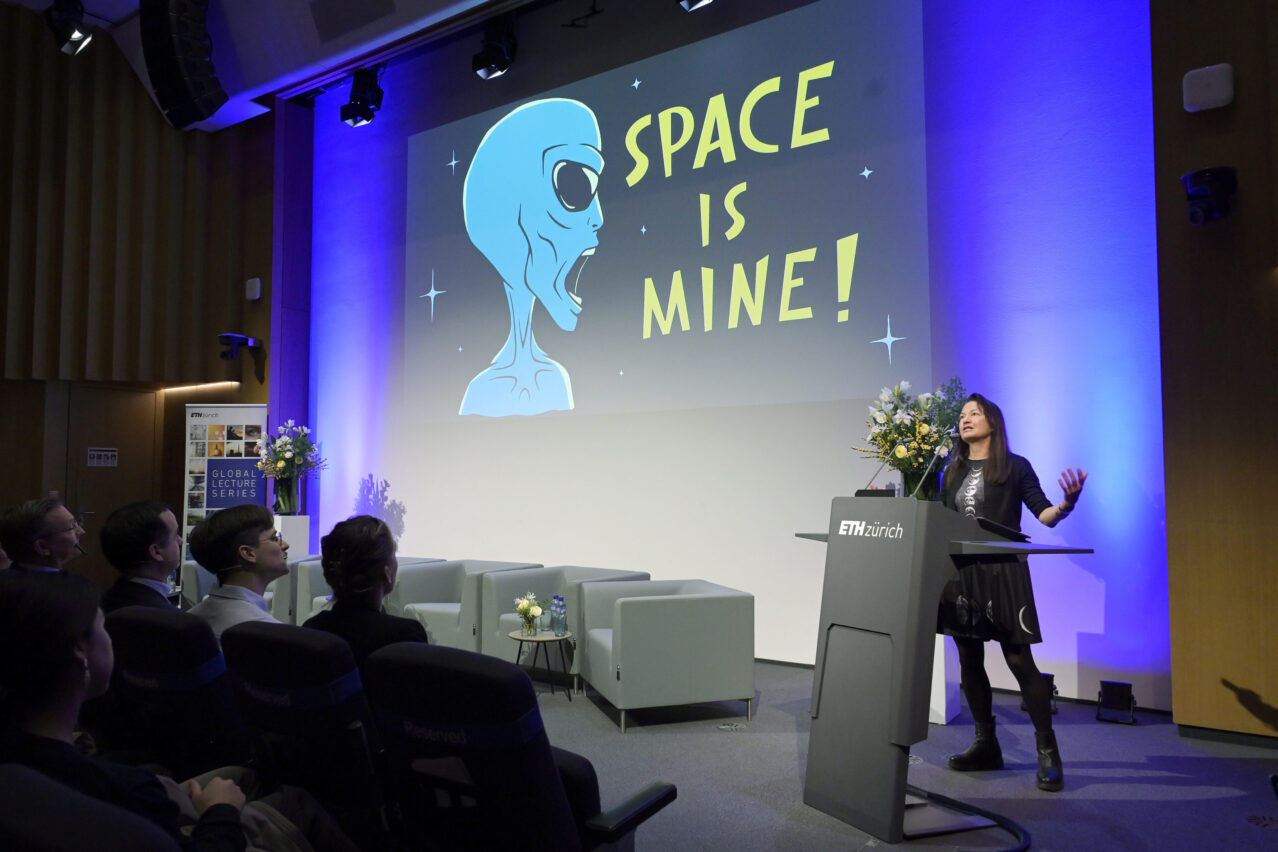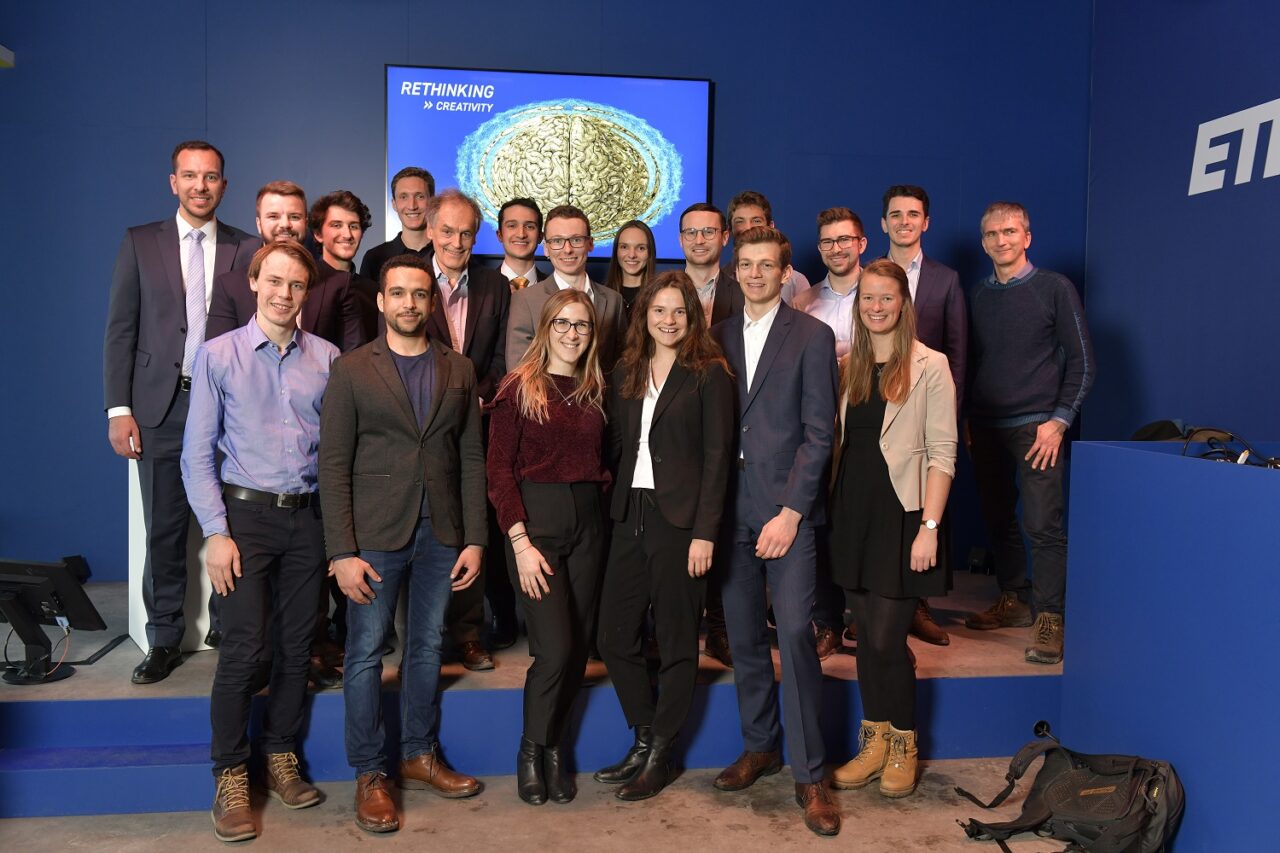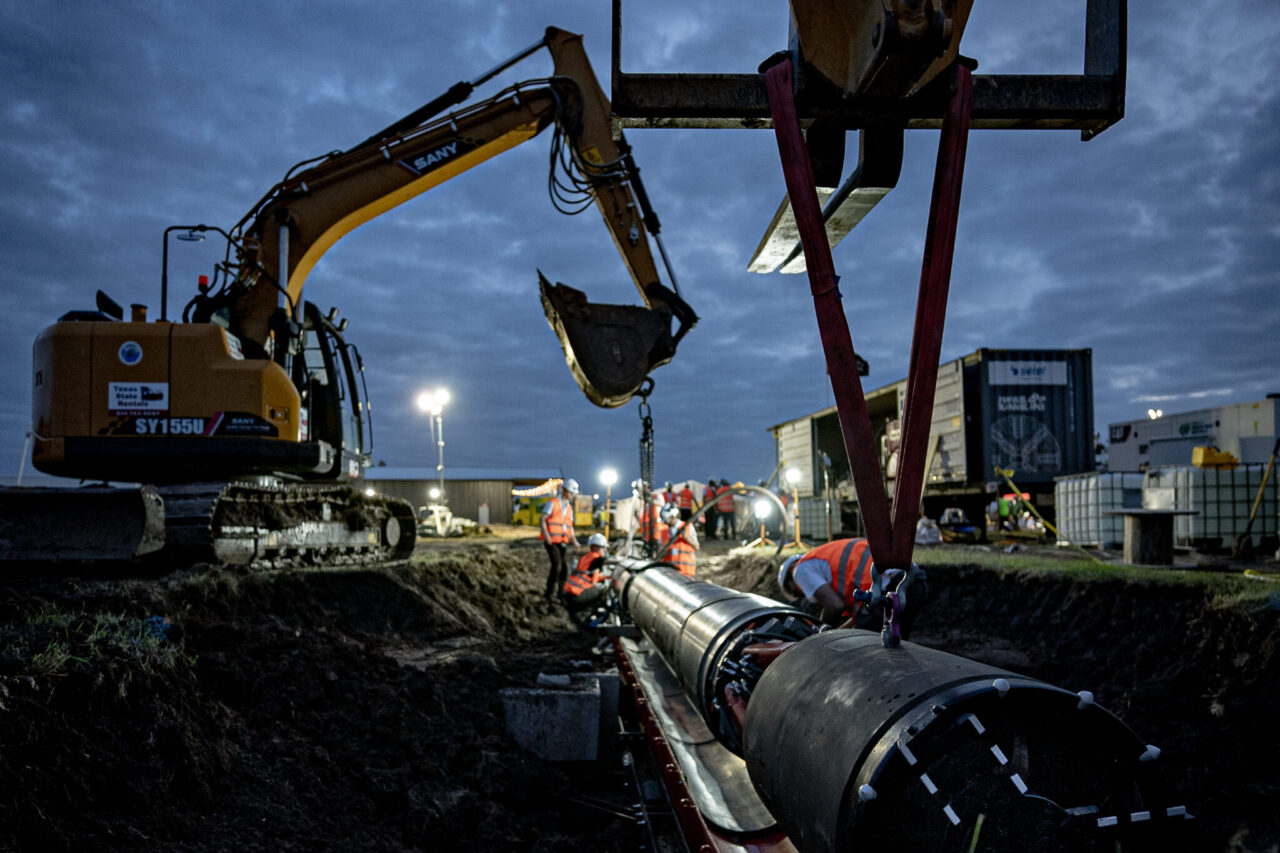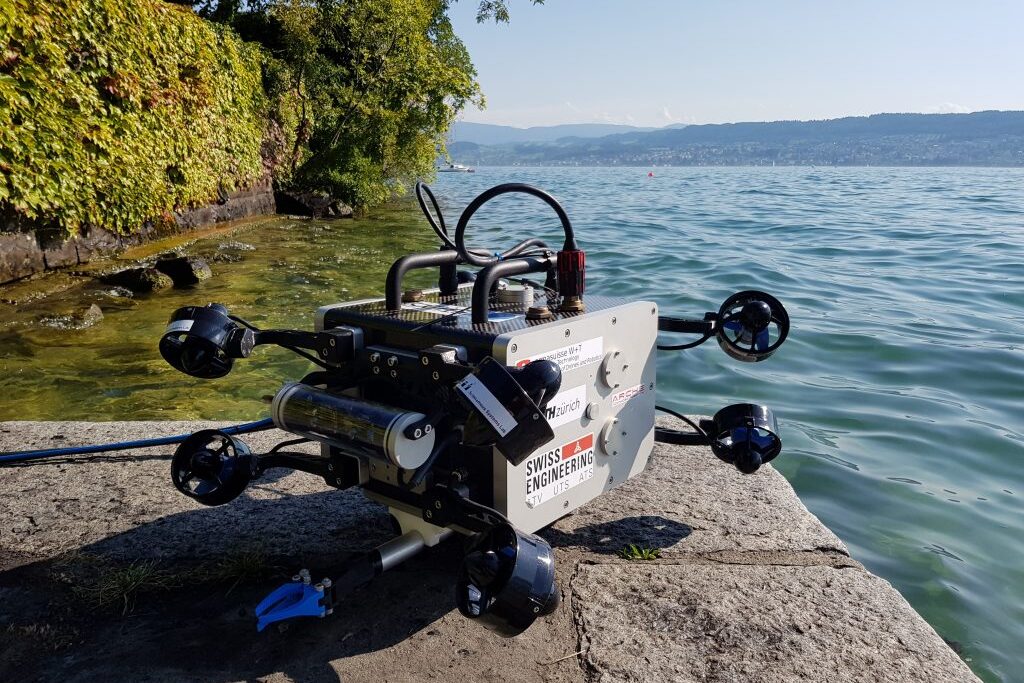by Giacomo Valle, Postdoctoral Researcher, 11 February 20201
I am Giacomo Valle, a neural engineer and one of the inventors of MYLEG. Currently, I am a postdoctoral researcher at the NeuroEngineering Laboratory of Professor Stanisa Raspopovic at ETH Zurich.
My passion is the research of connecting the human nervous system with bionic limbs. Striving to close the gap between humans and machines, this research combines the knowledge of neuroscience and medicine, as well as engineering and artificial intelligence, with the fundamentals of psychology. The research aims to create prosthetic limbs that utilize the body’s complex senses and nervous system to restore sensory-motor functions lost after an injury or a disease.
I am the manager of the Swiss Neurolegs team from ETH Zurich participating and winning the silver medal in Cybathlon 2020 Global Edition. The CYBATHLON of ETH Zurich is an incredible competition where different people with a physical disability compete not in races based on speed or strength as in the ordinary Olympics, but in performing daily-life activities using the most advanced assistive technologies in the world (both research prototypes and devices already available on the market). Beyond the competition and the challenge, CYBATHLON is a unique event that promotes scientific and technological research in the biomedical sector. Furthermore, CYBATHLON increases the awareness of society towards the daily difficulties and challenges faced by people with motor disabilities, highlighting the importance of social inclusion and technological research in this field.
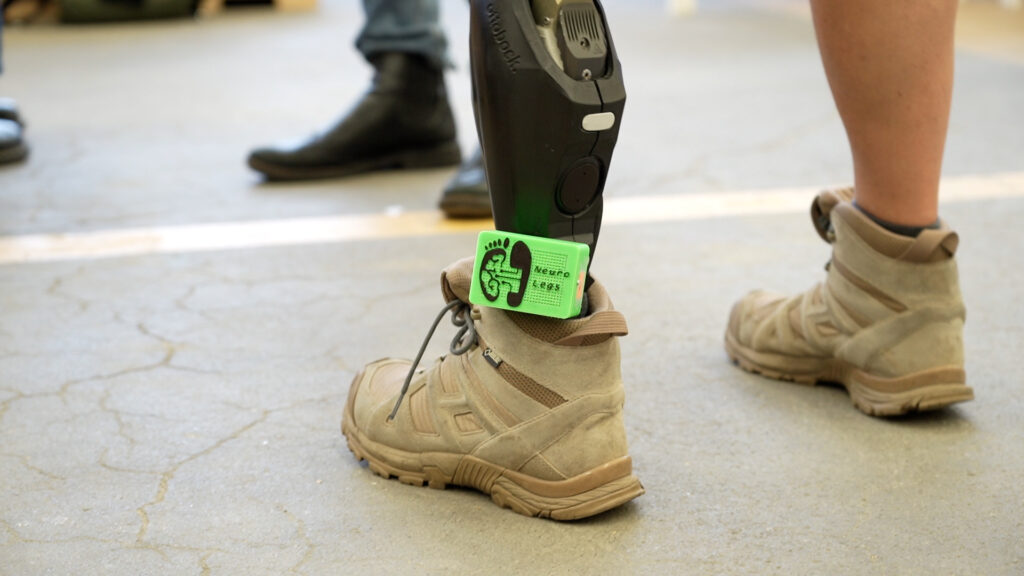
Neurolegs is made up of scientists, researchers and students from different fields, and by combining forces we want to create a tool that can effectively help the user in everyday life. By participating in the CYBATHLON, our team hopes to get closer to that goal. But what is crucial for us is that it’s not an athletic competition nor is it about top athletes winning; it’s about people with disabilities in everyday life.
Our team has set itself the goal of restoring the superficial sensory feedback for a missing leg by means of portable sensors that can be fitted to shoes. It is a non-invasive and non-permanent technical approach that can be applied to any commercially available solution. Indeed, the lack of sensory feedback is a major factor why many don’t want to use prostheses. By providing this feedback, we want to increase confidence in the mobility of and acceptance for prostheses.
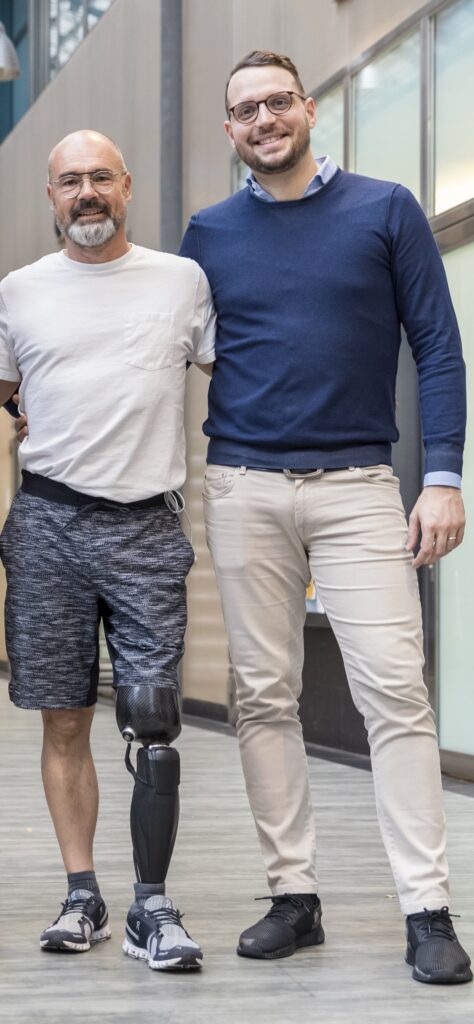
“I left my office for a tour on my Harley, expecting to return to work the next morning – but I didn’t return until eight months later,” Stefan (the pilot of the NeuroLegs team) says. In city traffic, a car suddenly drove out of a queue into his lane, hit him on his motorbike and crushed his left leg.
Relatively quickly, Stefan found a way to cope with his new situation, including the fact that the accident was someone else’s fault: “I lost a lot of blood and was unstable at first. My leg had to be amputated at the knee. I quickly overcame the phase of ‘could it have gone differently?’ and learned to accept my fate.”
Since 1996, Stefan has been an entrepreneur and headhunter in marketing and communications. He often acts as a consultant and mentor for people who are looking for a career change. In his spare time, he plays wheelchair tennis. He was a tennis player before, but getting the timing right with his wheelchair was a new challenge.
“The accident is one of the reasons why I’m so active today. I enjoy tackling and achieving new things and being able to determine my own life. That’s one of the reasons why I’m competing at the CYBATHLON,” Stefan says.
Thanks to the ETH startup ecosystem and to the support of Innosuisse, this research project is now moving from research to the society. This could be possible only in an environment in which an efficient and supportive technology transfer is combined with outstanding scientific innovations.
Because, it is not only important to have good ideas but also how to implement them in something real able to improve our life’s quality. In particular, important funding schemes are helping swiss inventors to make a nice dream a reality. This was also the case of MYLEG that won the BRIDGE Proof of Concept 2020 award translating research in a successful business idea.
With the growth of the micro-techniques and the computer simulations, the implantable neuro-technologies will be literally become part of us. Indeed, the direct connection of the human brain with all the technologies around us is also the aim of famous companies such as Neuralink and Facebook. Of course, this metamorphosis of the human being, thanks to the connection with the machines, will raise additional crucial points. Ethical, legal and social questions have to be taken into account. The connection of humans and machines through brain-computer-interfaces (BCIs) surely requires further attention.
Links
LinkedIn: https:/www.linkedin.com/in/giacomo-valle-a1407794/
Twitter: @giacomo_valle
Website ETH Laboratory: https://neuroeng.ethz.ch/
MYLEG website: www.my-leg.com
Video of CYBATHLON: https://www.youtube.com/watch?v=btwcB-IHOcU&feature=youtu.be
BBC: https://www.bbc.com/news/health-42430895
About the author
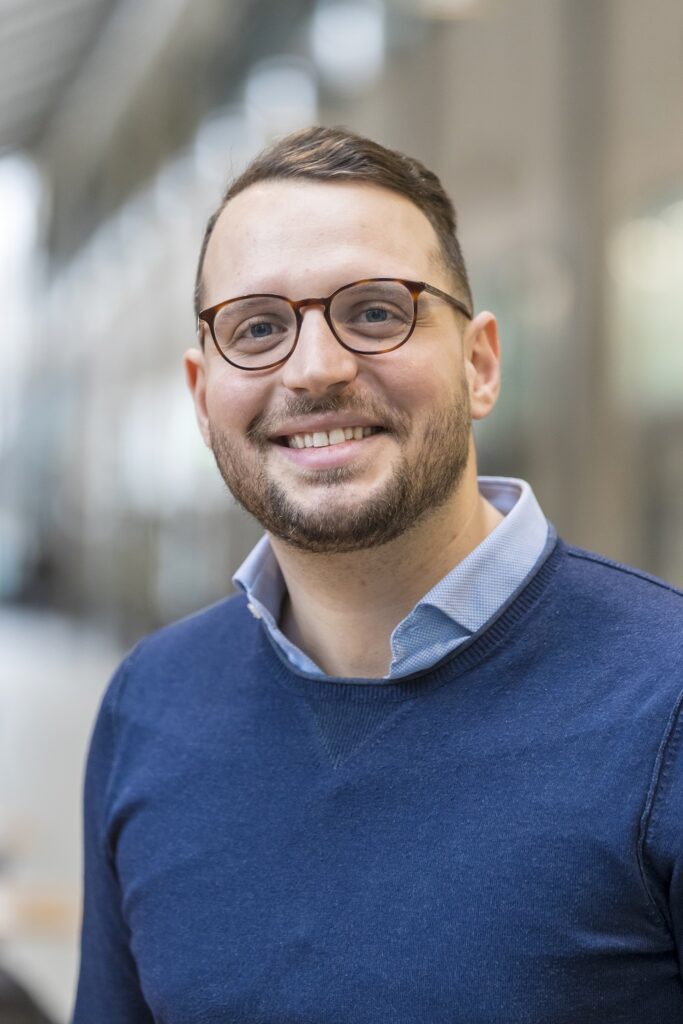
Giacomo Valle is a Postdoctoral Researcher at ETH Zurich and a Neural Engineer



